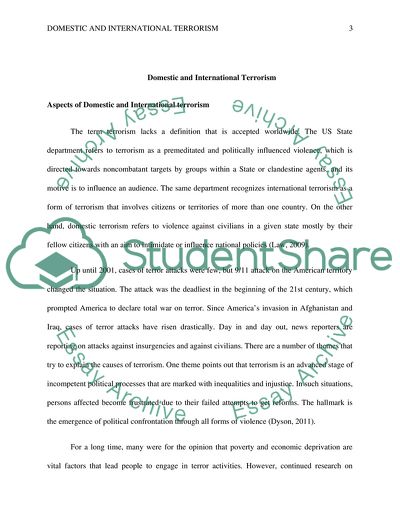Cite this document
(Effects of Domestic and International Terrorism on the Economy Term Paper Example | Topics and Well Written Essays - 1500 words, n.d.)
Effects of Domestic and International Terrorism on the Economy Term Paper Example | Topics and Well Written Essays - 1500 words. https://studentshare.org/military/1782911-domestic-and-international-terrorism-and-how-its-effects-on-the-economy
Effects of Domestic and International Terrorism on the Economy Term Paper Example | Topics and Well Written Essays - 1500 words. https://studentshare.org/military/1782911-domestic-and-international-terrorism-and-how-its-effects-on-the-economy
(Effects of Domestic and International Terrorism on the Economy Term Paper Example | Topics and Well Written Essays - 1500 Words)
Effects of Domestic and International Terrorism on the Economy Term Paper Example | Topics and Well Written Essays - 1500 Words. https://studentshare.org/military/1782911-domestic-and-international-terrorism-and-how-its-effects-on-the-economy.
Effects of Domestic and International Terrorism on the Economy Term Paper Example | Topics and Well Written Essays - 1500 Words. https://studentshare.org/military/1782911-domestic-and-international-terrorism-and-how-its-effects-on-the-economy.
“Effects of Domestic and International Terrorism on the Economy Term Paper Example | Topics and Well Written Essays - 1500 Words”. https://studentshare.org/military/1782911-domestic-and-international-terrorism-and-how-its-effects-on-the-economy.


